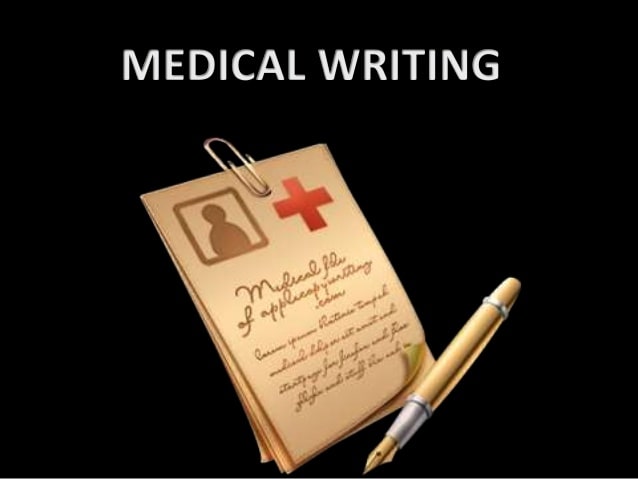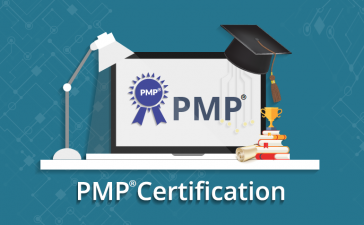INTRODUCTION:
Medical writers link scientific medical knowledge to written communication for a range of organisations, such as hospitals, educational medical centres, and pharmaceutical industries. Scientific medical writing or non-scientific or marketing medical writing are the two most common courses they take. Drug trials and medical study findings, as well as clinical data, are translated by medical writers for use in regulatory documents and medical journal abstracts delivered to a professional audience.
Advertising copy, news releases, and educational materials for the mass audience are the primary focus of medical writers. They collaborate with doctors, scientists, and other health professionals to develop content and create information for patients, such as leaflets, brochures, and websites, as well as educational materials such as slides and posters. Medical writers must have a bachelor’s or master’s degree in journalism or English, as well as experience in health and science writing and fluency in medical regulation and approval.
In terms of salary, opportunity, and personal development, the industry of medical writing is rewarding.
The medical writing industry is rapidly expanding, so if you have the required skills and a strong desire to succeed, you should look into medical writer jobs.
Henry Harvin Medical Writing Course:
A one-of-a-kind Medical Writing course that will teach you everything you need to know about writing for pharmaceutical regulatory and medico-marketing purposes. As you improve your skills as a medical and scientific writer, you will strengthen your writing abilities. Your accreditation as a Certified Medical Writer (CMW) is the key to your success.
Team up with the industry leader in education and training.
This is one of Henry Harvin’s flagship training, and it is one of the best Medical Writing courses in India right now. A lot of time and resources have been meticulously invested in ensuring that only the most relevant content is delivered to students.
Curriculum that is integrated
Subject matter specialists have carefully crafted the Medical Writing Training Course’s curriculum to ensure that you are “industry ready” to handle the challenges of the employment market.
Medical writing training that is 100 per cent practical
Get hands-on medical writing training with projects + a focus on learning during doing + the well-known GCAO pedagogy.
The recruitment procedure for medical writing positions may differ from one organisation to another; however, the normal medical writer vacancy recruitment process will consist of two parts: a face-to-face interview and a written test. The recruitment manager/senior medical writer will evaluate your attitude, experience, subject knowledge, and expertise for the role during the face-to-face interview.
Here’s a list of Top 20 Medical Writing Interview Questions and Answers that will help you crack and succeed in your Interview.
Q1. What can you tell me about yourself?
Some questions are not allowed to be asked by your future employer (but trust me, they probably want to). They shouldn’t, for example, ask about your family or how far you live from your future workplace. If you can find a way to answer these questions in any case (with the answers they want to hear), that will give them some additional information to assist them in making the (correct) decision.
Q2. How would you describe your work ethic?
Make sure to emphasise the specific example of what you offer to the organization while explaining this. Resolve to fulfil job responsibilities, optimism, and a desire to be as efficient as possible at work are all positive qualities.
Q3. What can you deliver me that no one else can?
This is where you describe your track record of performance achievements. Show an employer your value and how you’d be an asset by going into details from your resume and portfolio.
You must state, “I am the best candidate for the job of Medical Writing.” Although I am aware that there are other individuals that could fit this role, my commitment to excellence sets me apart from the competition. I am dedicated to delivering the best results possible at all times. For example…?”
Q4. What qualities do you seek in a boss?
Maintain a positive attitude and avoid being too particular. Since most managers believe they possess these qualities, good attributes include moral character, honesty, and intelligence.
Q5. What would your perfect boss/supervisor be like?
During the interview, Employers will want to know how you handle supervision as part of the medical writing process. They want to know whether you have any issues with authority, if you can work well in a group, and if you can follow instructions well etc.
Never, ever, criticise your past supervisor or employer. This is a red indication for companies, and your prospective employer will likely assume you’re a difficult employee who can’t work in a team or follow instructions, agreeing with your previous employer.
Q6. What is the most irritating quality of your coworkers that you have experienced?
This question is intended to determine if you work well in a group, with others, and if you’ll be a perfect fit for the interviewer’s company. It’s a trap. Think long and hard, but you literally can not think of anything that annoys you about your coworkers. The best answer is a quick positive answer.
Q7. How do you go about writing?
You’ll have to think outside the box to answer this question. The goal is to make sure you have a process in place, as well as to get a sense of how you think and whether you’ll be a good fit for the company. If you’re not sure what you’re doing or how to explain it, write down your steps the next time you sit down to write. This will help you understand your process and the order in which you perform the tasks.
Q8. How do you ensure that your writing is of high quality?
The interviewer wants to make sure you understand the importance of quality assurance when it comes to the content you create and that you have measures in place to continuously produce high work with minimum errors. When drafting a response to a topic like this, make sure you tier it according to the skills you have. Your team, for example, may have colleagues who can examine your work or perhaps a team dedicated to helping writers.
Q9. What are your techniques for resolving conflicts with the people you supervise?
First and foremost, you attempt to avoid conflicts wherever possible. But, if it happens and there’s no way to avoid it, you try to understand the other person’s point of view and find a solution that benefits everyone. You, on the other hand, maintain the authority of your position at all times.

Q10. As a medical writer, tell me about an instance when you had to give someone difficult feedback.
Your interviewer is trying to determine whether you can effectively communicate, manage workplace problems, and motivate people through difficult times by asking this question. Giving negative remarks needs honesty, thoughtfulness, and tact. Answering that question well can indicate to an interviewer that you’d be a good fit for a managerial role or one that requires strong cooperation.
Q11. Did you get along well with your former boss?
For many, this is a terrifying question! Never give a negative answer when answering this question. “I didn’t get along with my manager” or “The management didn’t handle the company well” can put you in a negative light and decrease your chances of getting a job offer. Answer positively, stressing that you’ve been exploring a way to improve your career. Begin by informing the interviewer of what you learned in your previous role as a medical writer.
Q12. What do your boss and coworkers think of you?
First and foremost, be genuine (remember, if you acquire this position, your previous managers and coworkers will be contacted!). Then, try and draw out skills and characteristics that you haven’t addressed in other parts of the interview, such as your strong work ethic or willingness to pitch in on other projects as needed.
Q13. Why should I employ you to write medical writing?
You must be prepared with a good summary of the top reasons to choose you in order to close the deal on the job offer. Even if your interviewer doesn’t ask one of these questions directly, you should have an answer ready and be on the lookout for opportunities to communicate your top reasons during the interview.
Q14. As a medical writer, what are your biggest professional strengths?
We advise being honest (discuss your actual strengths rather than the ones you assume the interviewer wants to hear); and relevant (choose your strengths that are most targeted to this particular position, such as Medical writing); and specific (instead of “professional skills,” choose “persuasive communication” or “relationship building”). Then give an example of how you’ve showcased these qualities in a professional situation.
Q15. What are your areas of weakness for a position as a medical writer?
Try not to be too negative when answering this question. Instead, choose one of your weaknesses and try to convert it into a strength.
You could be a perfectionist, for example, which means you take longer on tasks but ensure that they are performed to a high standard. Making a negative into a positive is essential since it avoids being overly critical and indicates your ability to reflect on your own performance.
Q16. Have you ever had to terminate someone as a medical writer? What were your thoughts on the situation?
Think about your answer wisely. For most organizations, this is a very severe issue that requires a very serious response. You should emphasize that you will do it when the time is appropriate, but you don’t want to come out as insensitive to the process. Remember that firing someone is not the same as laying them off; the latter is usually done for the company’s benefit.
Q17. When you’re under pressure, how do you manage your time?
As a medical writer, you may be working on multiple huge projects at the same time, which can be difficult. Because this is a typical situation in the profession, your interviewer wants to know that you’re prepared and able to deal with the pressure while keeping things going. Assess how you manage your time, organise your tasks, and prioritise your tasks when you’re stressed. If you can explain something with an example, do so!
Q18. What does it take to work as a medical writer?
When you work as a medical writer, you could be working on a challenging piece of new research transcribing one minute, medical training materials for pharmaceutical companies or publications the next, and patient materials and conference reports the following week. The industry is wide and exciting, and those with a medical degree and the ability to create outstanding content will find lots of good opportunities. There are also many prospects for advancement within the profession, especially if you can stand out for your high-quality work and ability to meet deadlines.
Q19. When did you feel the most satisfied in your role as a medical writer?
I’m a person who enjoys interacting with others. When I was working with community residents, making sure I was able to meet their requirements and providing them with the best possible comfort in a difficult situation, I was always the happiest and most satisfied. It was clear that this was my favourite aspect of the job. Part of the reason I’m interested in this position is that I know I’d have more public interaction, on a more critical level.
Q20. What makes you think you’d be a good fit for this role as a medical writer?
What the company does and how the job function relates to that is an important part of pre-interview preparation. This includes the company’s ideology as well as its working methods. This type of question aims to determine how a candidate will fit within the organisation as a Medical writer. Answer positively, giving specific examples of how you think you’ll perform in the new role.
CONCLUSION:
Medical writing is one of the most rapidly growing professions, involving writing about the healthcare industry and drug development. Medical writers with postgraduate degrees are in high demand. As a Post Graduate Medical Writer, you’ll be exposed to a variety of professional opportunities with Manufacturers, healthcare websites, journals, magazines, pharmaceutical companies, and more.
Working as a medical writer may be both lucrative and interesting. In terms of salary, opportunity, and personal development, the industry of medical writing is rewarding. The development of research work by specialised writers is known as medical writing. A medical writer usually works collaboratively with scientists, doctors, and other subject matter experts to develop clear documentation that clearly explains scientific studies and product applications. Medical writing has quickly established itself in the pharmaceutical business since the industry has recognised the necessity for expert writers who can write well-structured documents that convey information in a clear, concise manner while complying with applicable regulations.
The demand for well-written documents that comply with the regulations, standards, and formats grows each year as more drugs and medical devices go through the rigorous processes of Clinical studies and regulatory procedures that lead to market acceptance. Medical writers combine their scientific knowledge and research skills with a knowledge of how to deliver information in a written style and create materials that are suitable for the target audience. Medical writers can work in a variety of situations, including pharmaceutical companies, medical journals, healthcare internet portals, hospitals, and newspapers, to provide medical and scientific writing support.
FAQs:

Medical writing is a technique for efficiently delivering scientific and clinical knowledge to audiences through written communication. Medical writing means the creation of a wide range of scientific documents, including regulatory and research documents, disease or drug-related educational and promotional literature, journal manuscripts and abstracts, content for healthcare websites, health-related magazines, and news.
Medical writers can work as ‘Medical Communications Specialists,’ ‘Medical Content Writers,’ ‘Medico-Marketing Writers,’ ‘Clinical Researcher,’ ‘Medical Quality Reviewer,’ ‘Medical Liaison,’ and ‘Clinical Educators,’ to mention a few.
You must be a graduate to take the Medical Writing Online course. It is preferable to have a degree in BioScience/Life Sciences/MBBS/Pharmacy/Chemistry/Biostatistics/Nursing.
In India, the demand for medical writers has expanded since hospitals, research centres, and healthcare portals frequently need healthcare write-ups. Many medical writers have degrees in science, paramedics, or medicine, however, it is not necessary. An additional credential that demonstrates one’s knowledge and experience in this sector is a medical writing course certification from a reputed institute.
These days, a career in medical writing is booming.
Medical writing can be a lucrative and exciting job. Medical writers are in high demand not only in pharmaceutical businesses, but also in healthcare journals, hospitals, healthcare online portals, newspapers, BPOs, KPOs, and CROs that support medical and scientific writing.
As a medical writer, you can gain benefits in a variety of ways:
* It’s easy to get a job that matches your qualifications because they’re in high demand.
* The ability to work on your own schedule. You can work as a full-time employee or as a freelance writer from home.
* Depending on your skills and expertise, medical writing can be a rewarding profession











I love this top trending medical training interview questions and answers, this is must read segment for those who want to go in this line.
Great list! Thanks a ton for this amazing medical writing interview questions and answers pdf. All of the questions are awesome and it helped me a lot.
MEDICAL WRITING INTERVIEW QUESTIONS AND ANSWERS were very great..!! This is must read segment for those who want to go in this line.
We are thrilled to hear about your positive experience with us, Fena . Thank you for taking the time to give us your feedback.
The blog on Top medical writing interview question and answers was interesting..! Helped me a lot..!!
This blog on medical-writer-interview-questions-and-answers is a great boost for me. The interview questions and answers provided were phenomenally informative and useful.
keep writing. Rise in freelance medical writing opportunities, as mentioned in your blog is really exciting news to hear. I was very excited to read such a blog.
I have wonderful experience with Henry Harvin at medical writing
All Professors helped me a lot during interview test preparation
I recommend this institute to everyone. I got placed in one of the best medical writing company I am so happy and all credit goes to Henry Harvin. Thank you so much for all your support😇
MEDICAL WRITING INTERVIEW QUESTIONS AND ANSWERS
Medical Writing Interview Questions and Answers
I was preparing for an interview and i was looking for courses related to it, as I was preparing it online i wanted the best course in India that’s when i came across this best Medical Writing Interview Questions and Answers, This blog has helped me shortlist the best course. Thank you sharing this knowledgeable information with us
I was actually looking for best medical writing interview questions and answers ses and found this article which clears all my queries. This is an amazing article. Bookmarking this article for future reference.